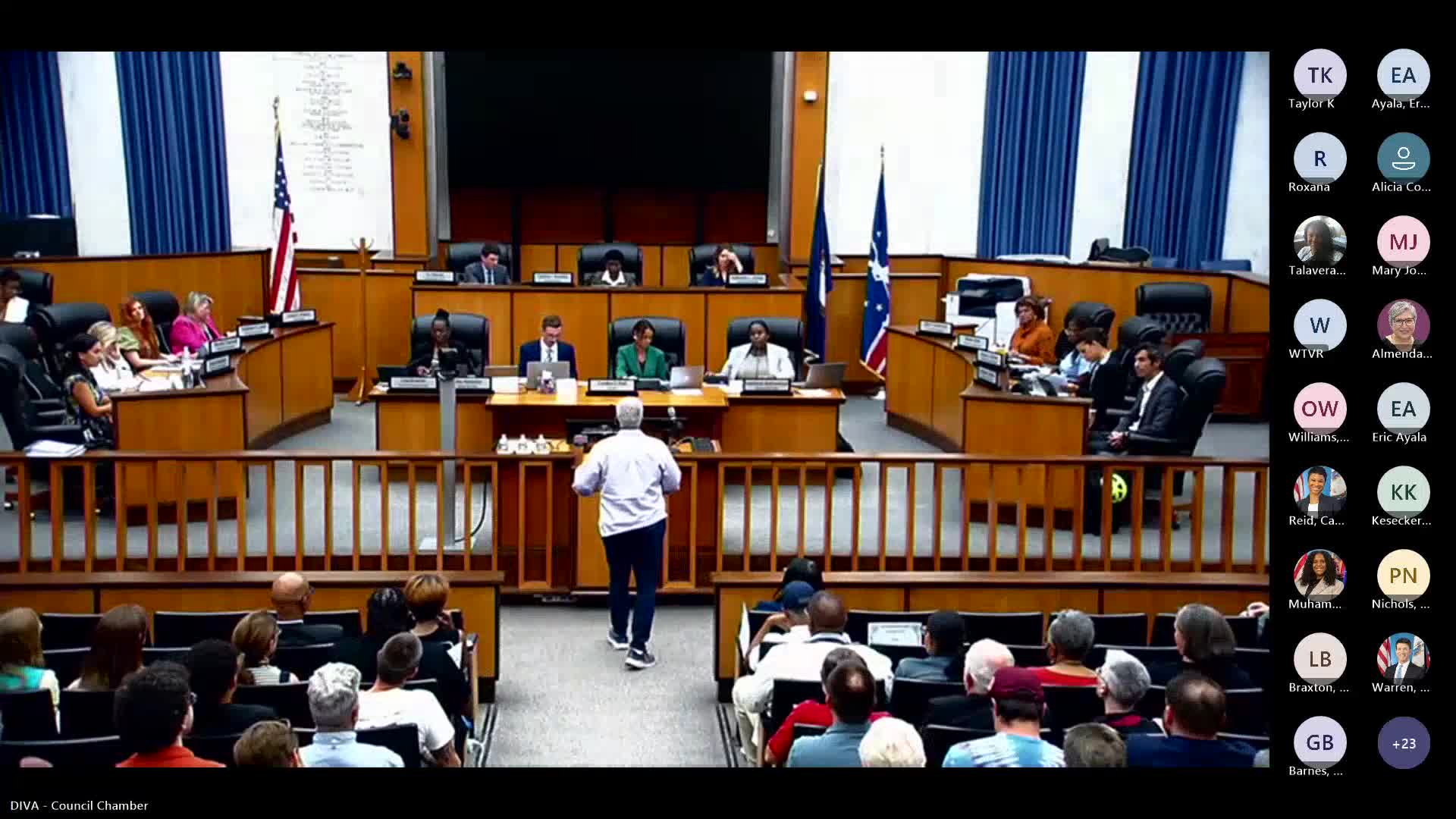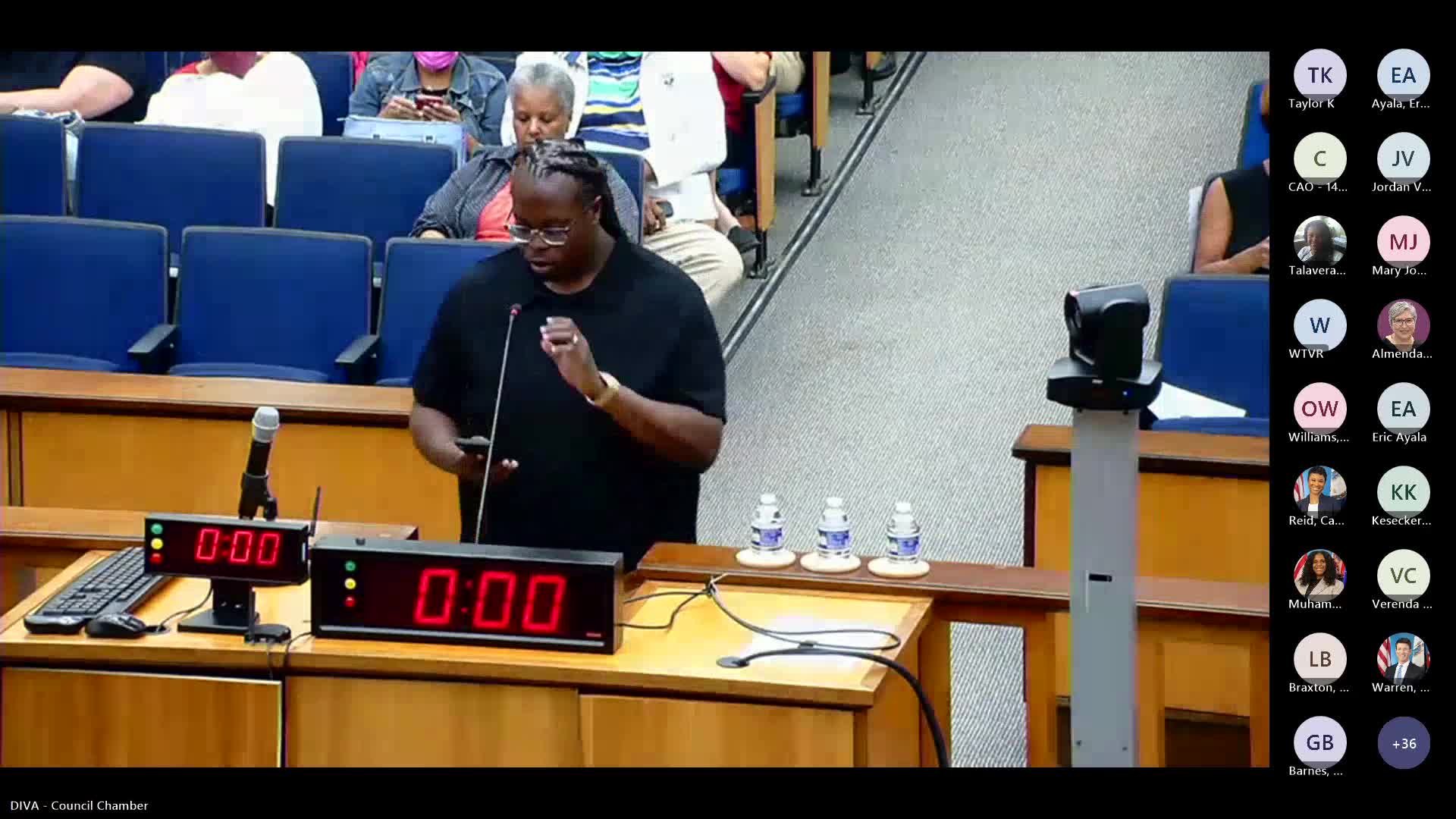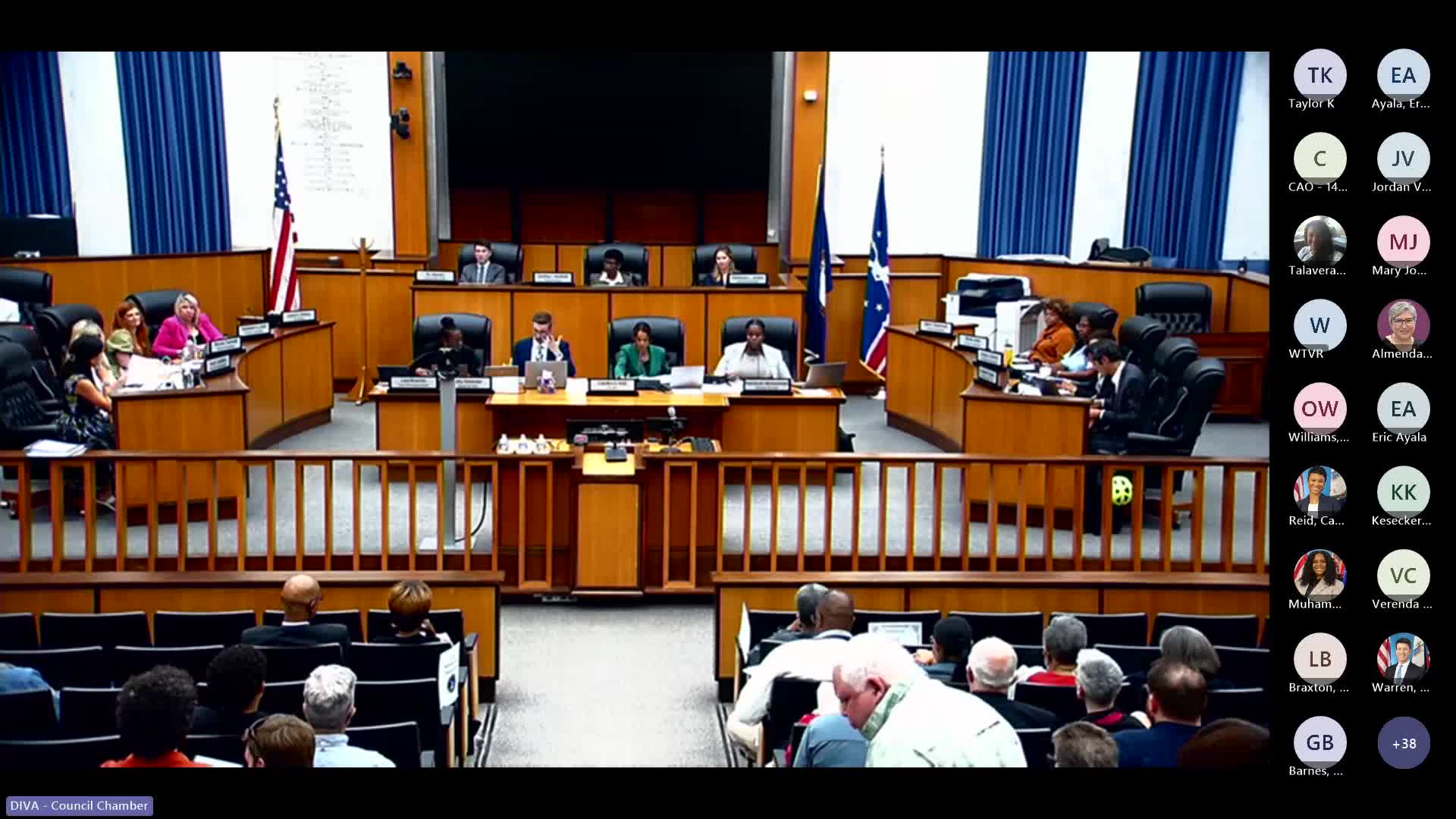Article not found
This article is no longer available. But don't worry—we've gathered other articles that discuss the same topic.

Richmond residents press council to protect immigrants, limit surveillance and prioritize protections for renters

Richmond Council delays sale of Henrico parcel, directs staff to solicit public bids

